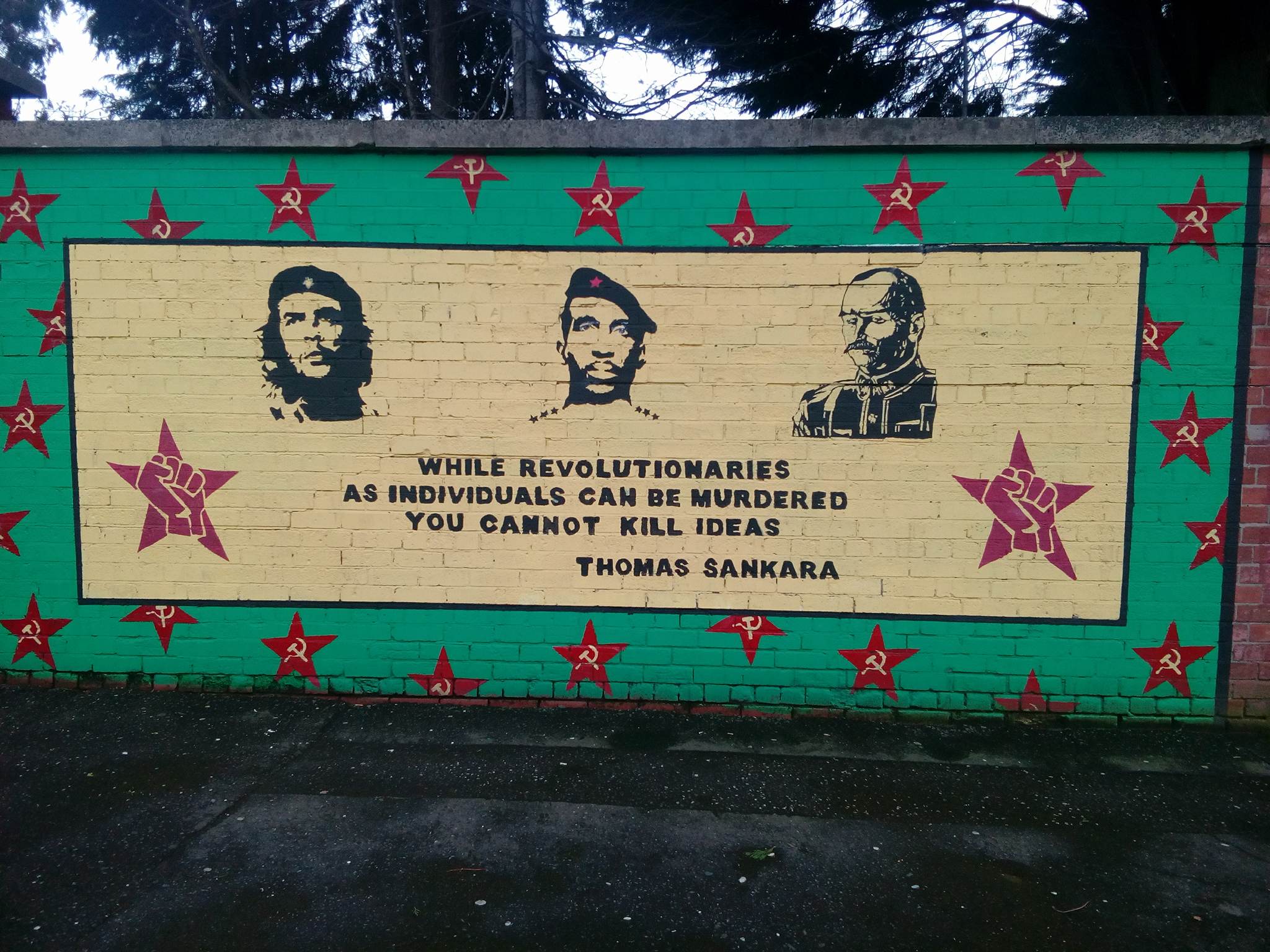FT, Corcaigh
There is a paradigm shift being promoted in Ireland today – but by whose hand and in whose interest?
Organised labour with a shared national identity and a pool of democratic heroes and martyrs to draw from to inspire their contemporary struggles is difficult to subjugate, divide or to be utilized in the service of foreign finance. This tradition and unifying comradery has been misused by the Irish bourgeoisie, but it has a revolutionary and insurrectionary potential that still frightens them today. The centenary celebrations have thus been bowdlerized and defanged, and rather than providing a multi-faceted commentary of events and the material forces which underlay them, the narrative of Unionist and British historical institutions has been internalized with the ready accommodation of a right-wing state and the class interests it represents.
The memory of the Easter Rising and the unique potential it symbolizes is strongest in the ranks of the Irish working class, for whom its vision of a brighter egalitarian future still holds currency and serves as a source of hope. Vested interests cause the capitalist class to more readily identify with their class equivalents internationally, and one will find that the Irish businessman will have more in common with the German and English businessman than he does with his own countrymen – it is this domestic dispossession and incongruity that lends itself to the isolation of the Irish bourgeoisie from its own historical narrative. Its ideology is merely an expression of the contradictions of its material position – its collective attempt to stamp out this cognitive dissonance by rewriting history.
An atomised working class with no collective consciousness, national or class-based, is amenable to global capital and too weak to resist its encroachments. It follows thus that Easter Rising revisionism is an expression in ideology of the interests of the middle class and the global capital which their power and socioeconomic privilege stems from. This ideology is being embodied in the places you would expect – every organ of power and influence in their control. Most notably a trifecta of:
Irish Academia – which has a strong historical base of unionist sympathy to capitalize on, and an instrinic bias towards middle class cultural hegemony by the financial background needed to enter and succeed in it.
The Irish Media – monopolized in the hands of financial interests like Denis O’Brien, and staffed by ideological mercenaries who have been reared and trained in the intellectual climate of Irish Academia.
The Irish State and its institutions – the insurrectionary and revolutionary elements of the Rising have become a thorn in their side through their resonance with current political struggles.
Republican socialists must fight to resist this insidious and slow-boiling narrative change which seeks to rehabilitate what figures it can use to reinforce their political authority while rejecting any aspect of them that threatens capitalism. We must not fight to preserve the existing petite bourgeois interpretation of the Easter Rising as a solely nationalist phenomenon, but fight to provide an anti-theory to that of the ruling strata – a socialist and marxist vindication of the powerful revolutionary potential of the Rising and the social vision of its executors.
Religion will be brought up extensively to try to recontextualize the national struggle as a religious conflict. This simplification of the struggle as a battle between Protestants and Catholics is a primitive mistake and takes no account of the religious discrimination of Presbyterians by the Anglican church in the Irish colonial administration previously. It incriminates the men of the rising as religious demagogues when their social vision was secular in comparison to the Catholic Pastoralism of the home rulers. It also sweeps under the rug the religious discrimination that ran rampant in Northern Ireland in the aftermath of the rising while the Commonwealth turned a blind eye.
The Historical Society’s abstract mentions that there was no stomach for rebellion amoungst the Irish people – this is a lie. Sinn Fein would not have risen to total control of the national republic if there had not been a latent and powerful sense of otherness and disaffection in Ireland. Home Rule’s support was borne out of generations of repression and brutality, of violent response to any desire for independence from the British establishment. Violence was the only response to such control capable of breeding resistance through inspiration.

